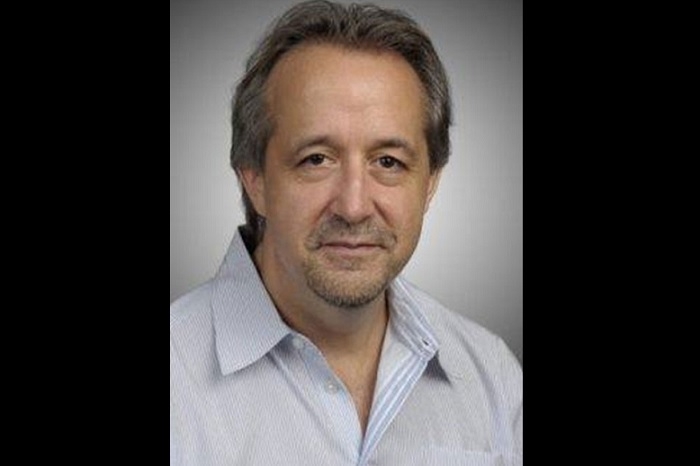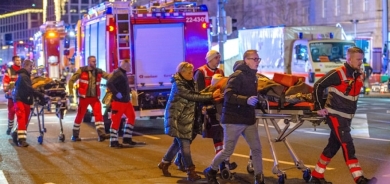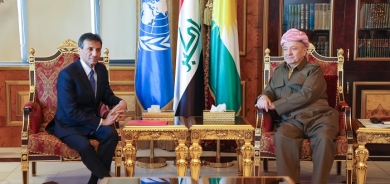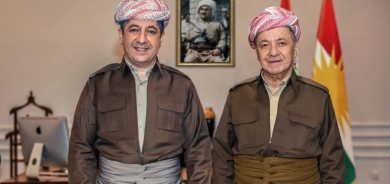Professor Michael Mousseau to Gulan: The Russo-Ukrainian war strengthened the hand of the industrialized democracies

Michael Mousseau is professor of international relations who specializes on the link between economy, society, and conflict. His economic norms theory has been published in dozens of articles, including Conflict Management and Peace Science (2005, 2018), Democratization (2016), European Journal of International Relations (2003), International Interactions (2002, 2010), International Security (2002, 2003, 2009, 2019), International Studies Quarterly (2003, 2012, 2013), Journal of Conflict Resolution (1998, 2000), the Journal of Human Rights (2022), the Journal of Peace Research (1997, 1999, 2008, 2011), and Structural Change and Economic Dynamics (2023). Mousseau has been a research fellow at the United Nations Studies Program, Yale University (2003); the Belfer Center International Security Program, Harvard University (2005 – 2006); and the Saltzman Institute of War and Peace Studies, Columbia University (2010-2011). His PhD is from Binghamton University (1998). Prior to coming to UCF in 2013 he was a professor of international relations at Koç University in Istanbul. Mousseau was a founder of the Eurasian Peace Science Network (2010). In 2020 he was awarded the Excellence in Graduate Teaching Award by the College of Sciences at UCF.
Gulan: How do you see the Russian-Ukrainian war and the changes it has brought about in international relations, particularly since it was suggested that economic interdependence may be used to prevent war?
Professor Michael Mousseau: The Russo-Ukrainian war strengthened the hand of the industrialized democracies and enhanced the prospects for a stable and peaceful world order. The industrialized democracies want a world based on the principle of the sovereign right of self-determination for all states, which they consider in their economic and security interests. Before the war, the leaders of Russia and China did not know the determination of the industrialized democracies to work together for the world order they preferred. The unified reaction of the industrialized democracies to Russia’s attack on Ukraine showed China’s leaders that, should they attack Taiwan, they would pay a steep price in the loss of trade with the industrial democracies. While China’s leaders want to attack Taiwan, they now must add the substantial cost of the loss of trade should they try to do so. In this way, the Russo-Ukrainian war has (ironically) promoted a more stable world order in the long term.
The attack on Ukraine solidified the view among the industrial democracies that Russia is a rogue state in that it violates the right of self-determination of other countries. Therefore, they are now unified in understanding that Russia must be contained with economic sanctions. Their actions forced Russia to move ever closer to the other contained rogue states, Iran and North Korea. However, the economic and military superiority of the industrial democracies is overwhelming, and they can provide limitless support to Ukraine. Iran and North Korea cannot provide Russia with the support it needs to continue the war for too long. Only China can provide this support. China, however, seems constrained by its economic dependency on exports to the commercial democracies. So far, China’s leaders have shown that they value their export markets more than they value supporting Russia. So long as the status quo continues, Russia is on the path to losing the war.
Theorists of economic interdependence argue that dependency on trade constrains states from waging war. The Russo-Ukrainian war challenges the interdependence hypothesis because Russia chose to attack Ukraine and lose the enormous profits it was making in oil sales to the European countries. The economic interdependence hypothesis says countries tend to choose their economic interests over their security interests. Yet most European countries decided to pay the steep cost of boycotting Russian oil, showing that they care about their security interests more than their economic interests.
The major case that might support the interdependence hypothesis is China. China appears to believe that its interests are in a Russian victory over Ukraine. Yet so far, China’s leaders have been reluctant to provide weaponry to Russia, fearful of being sanctioned by the industrial democracies. Thus, China’s leaders appear to care about their economic and trading interests more than their interests in a Russian victory over Ukraine.
Gulan: Given the repercussions of this war and the accompanying economic and financial sanctions imposed on Russia, is the globe on the verge of further economic decoupling? If so, do you think this will lead to additional wars in the future?
Professor Michael Mousseau: The globe is not on the verge of further economic decoupling. The Russian economy is relatively small, and China depends on exports to the commercial democracies. So far, China’s leaders have prioritized their trading interests over their interests in a Russian victory over Ukraine. If the economy remains the priority for China’s leaders, they will not supply weaponry to Russia, and the global economy will not be decoupled.
It is conceivable that the war in Ukraine and the sanctions on Russia have worked to prevent war between the industrial democracies and China. Before the war in Ukraine, China’s leaders could have made the same mistake as Putin: wage war (in this case for Taiwan) under the assumption that the industrial democracies would prefer to retain their trade ties rather than stand up for the principle of the sovereign right of self-determination. The Russo-Ukrainian war has shown that the industrial democracies support their principles over their profits, and now China’s leaders need to re-calculate if an attack on Taiwan is worth the now-certain substantial loss of trade it will provoke. Unlike Russia, China’s economy highly depends on manufactured exports to the industrialized democracies. China’s leaders thus know that if they attack Taiwan, their economy will collapse and would be unlikely to recover for many years. Therefore, the war in Ukraine and the West’s reaction to it has made the world safer and more stable than it was before.
Gulan: To what extent do you feel that what is called democratic peace will be a viable way to addressing the underlying causes of war?
Professor Michael Mousseau: The democratic peace is the observation that democracies are more peaceful than other countries, at least with each other. It is not a sustainable approach for eliminating the underlying causes of war because we do not know what causes this peace between democratic states. Most evidence indicates that higher income associated with commerce and industry likely causes the peace. Therefore, the promotion of democracy without a corresponding promotion of the economy will not yield peace dividends.
Gulan: The relationship between democracy and economic growth is frequently argued, with some claiming that the expansion of democracy is inextricably linked to economic growth and an improvement in citizens' income and wellbeing. What is your opinion on this?
Professor Michael Mousseau: Democracy, indeed, goes hand in hand with economic growth and development. It is also true, however, that neither income nor democracy alone can cause the other. High-income democracy needs two things: a government that protects the rule of law in property rights and contracts, and rising commerce. A good government without rising commerce cannot last, as disaffected groups rebel and challenge it. Rising commerce without good government cannot last, as few can trust the government’s protection of property rights and contracts. The trick is to get good governance and rising commerce simultaneously. Then, as the economy develops, the government can become more firmly democratic.
Gulan: Some analysts and observers highlight China's excellent economic performance despite the fact that the country is ruled by an authoritarian system. Do you think what is happening in China will serve as an alternate model for democracy?
Professor Michael Mousseau: China is not an alternative model for any country. China’s success can be attributed to several factors unique to China: a vast population, a highly effective police state, and a dictatorship determined to make China the manufacturing center of the world. These factors made investments in China more promising than elsewhere because international corporations could expect a reliably supportive government, a compliant and cheap workforce, and an economy that supplied most other manufacturing needs. However, China’s per capita income level is still relatively low and likely to stay that way. It is a relatively straightforward matter to attract foreign investments for simple manufacturing. Higher-end investment, however, requires a level of trust that a police state cannot have. Therefore, China will not reach high-income status and converge with the economies of the industrial democracies until its government becomes accountable, which its leaders seem unwilling to do.















